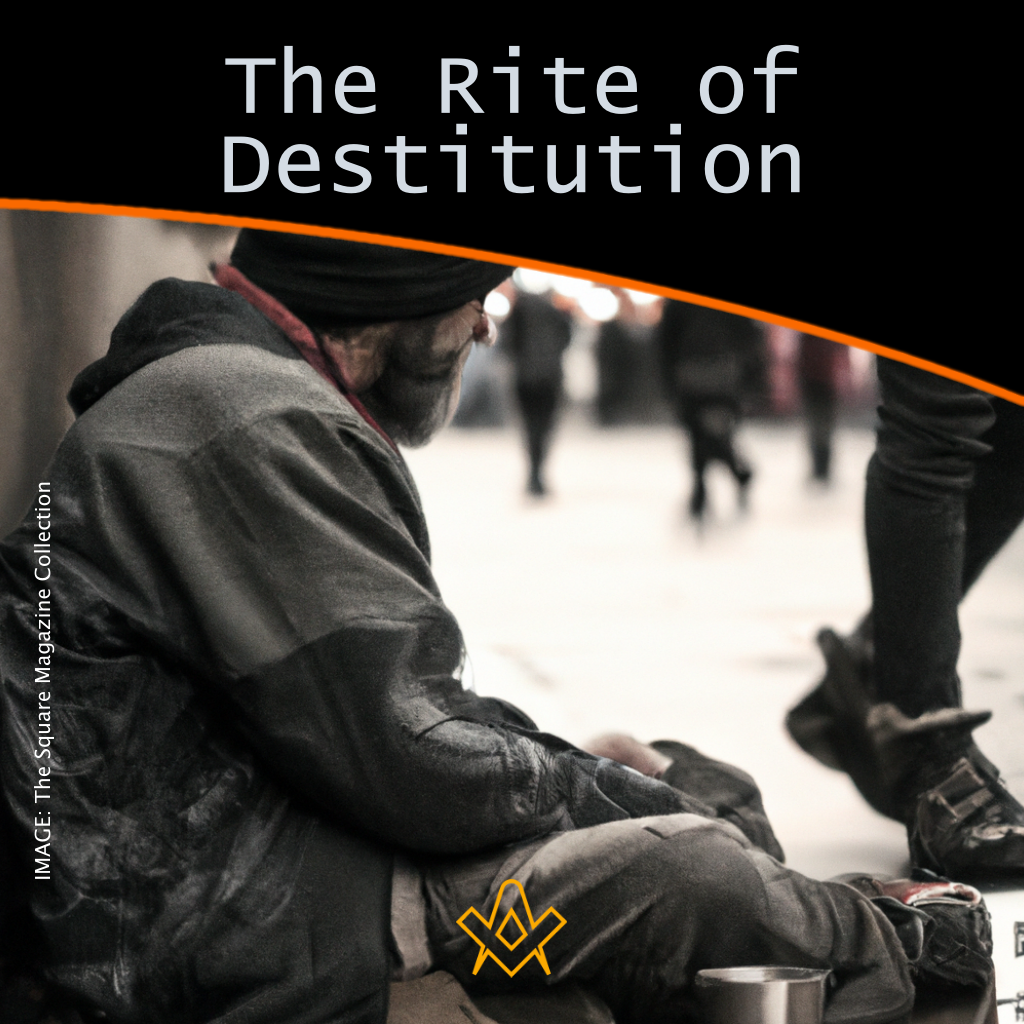Nothing in Freemasonry is more beautiful in form or more eloquent in meaning than the First Degree. Its simplicity and dignity, its blend of solemnity and surprise, as well as its beauty of moral truth, mark it as a little masterpiece.
Nowhere may one hope to find nobler appeal to the native nobilities of as man.
What we get out of Freemasonry, as of anything else depends upon our capacity, and our response to its appeal; but it is hard to see how ant man can receive the First Degree and pass out of the lodge room quite the same man as when he entered it.
What memories come back to us when we think of the time when we took our first step in Freemasonry.
We had been lead, perhaps, by the sly remarks of friends to expect some kind of horseplay, or the riding of a goat; but how different it was in reality.
Instead of mere play-acting we discovered, by contrast, a ritual of religious faith and moral law, an allegory of life and a parable of those truths which lie at the foundations of manhood.
Surely no man can ever forget that hour when, vaguely or clearly, the profound meaning of Freemasonry began slowly to unfold before his mind.
The whole meaning of initiation, of course, is an analogy of the birth, awakening and growth of the soul; its discovery of the purpose of life and the nature of the world in which it is to be lived.
The lodge is the world as it was thought to be in the olden times, with its square surface and canopy of sky, its dark North and its radiant East; its center an Altar of obligation and prayer.
The initiation, by the same token, is our advent from the darkness of prenatal gloom into the light of moral truth and spiritual faith, out of lonely isolation into a network of fellowships and relationships, out of a merely physical into a human and moral order.
The cable tow, by which we may be detained or removed should we be unworthy or unwilling to advance, is like the cord which joins a child to its mother at birth.
Nor is it removed until, by the act of assuming the obligations and fellowships of the moral life, a new, unseen tie is spun and woven in the heart, uniting us, henceforth, by an invisible bond, to the service of our race in its moral effort to build a world of fraternal good will.
Such is the system of moral philosophy set forth in symbols in which the initiate is introduced, and in this light each emblem, each incident, should be interpreted.
Thus Freemasonry gives a man at a time when it is most needed, if he be young, a noble, wise, time-tried principle by which to read the meaning of the world and his duty in it.
No man may hope to see it all at once, or once for all, sand it is open to question whether any man lives long enough to think it through — for, like all simple things, it is deep and wonderful.
In the actuality of the symbolism a man in the first degree of Freemasonry, as in the last, accepts the human situation, enters a new environment, with a new body of motive and experience.
In short, he assumes his real vocation in the world and vows to live by the highest standard of values.
Like every other incident of initiation it is in the light of the larger meanings of Freemasonry that we must interpret the Rite of Destitution.
At a certain point in his progress every man is asked for a token of a certain kind, to be laid up in the archives of the lodge as a memorial of his initiation.
If he is “duly and truly prepared” he finds himself unable to grant the request. Then, in one swift and searching moment, he realizes — perhaps for the first time in his life — what it means for a man to be actually destitute.
For one impressive instant, in which many emotions mingle, he is made to feel the bewilderment, if not the humiliation, which besets one who is deprived of the physical necessities of life upon which, far more than we have been wont to admit, both the moral and social order depend.
Then, by a surprise as sudden as before, and in a manner never to be forgotten, the lesson of the Golden Rule is taught — the duty of a man to his fellow in dire need.
It is not left to the imagination, since the initiate is actually put into the place of the man who asks his aid, making his duty more real and vivid.
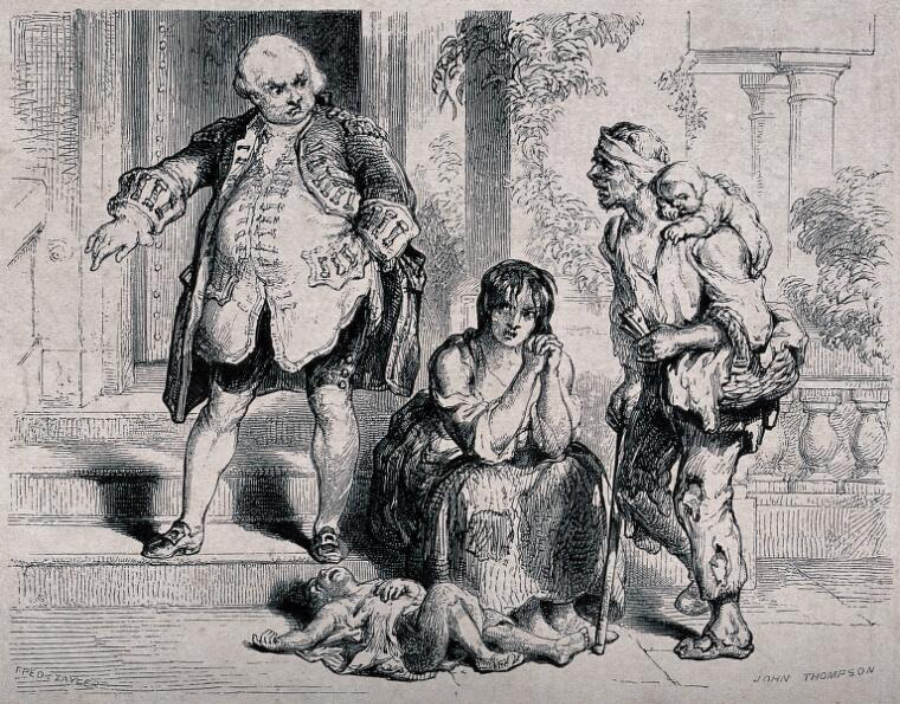
A liveried footman sends on their way a starving family who are sitting outside the side-door of a mansion. Wood engraving by J. Thompson after Fred Tayler.
IMAGE LINKED: wellcome collection Attribution 4.0 International (CC BY 4.0)
At first sight it may seem to some that the lesson is marred by the limitations and qualifications which follow; but that is only seeming.
Freemasons are under all the obligations of humanity, the most primary of which is to succor their fellow man in desperate plight.
As Mohammed long ago said, the end of the world has come when man will not help man.
But we are under special obligations to our brethren of the Craft, as much by the prompting of our hearts as by the vows we have taken.
Such a principle, so far from being narrow and selfish, has the endorsement of the Apostle Paul in his exhortations to the earl Christian community.
In the Epistle to the Ephesians we read:
“As we have therefore opportunity, let us do good unto all men, especially unto them who are of the household of faith.”
It is only another way of saying that “Charity begins at home,” and for Masons the home is the lodge.
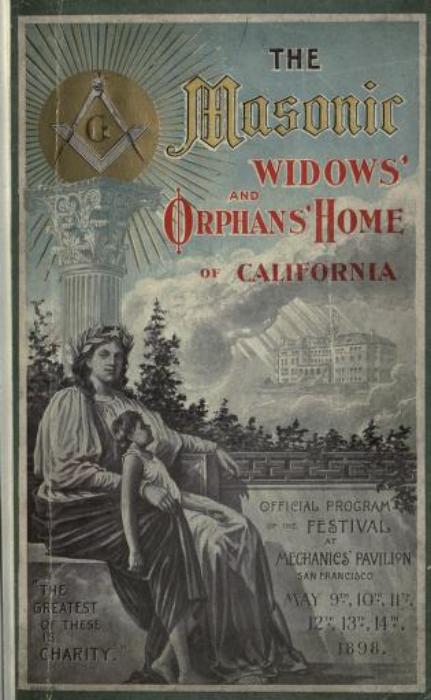
Frontispiece of ‘A history of the Masonic widows’ and orphans’ home, Decoto, Alameda Co., Cal. Official program grand Masonic festival at Mechanics’ pavilion, San Francisco, Cal. May 9, 10, 11, 12, 13, 14, 1898′.
IMAGE LINKED: Wikimedia Attribution 4.0 International (CC BY 4.0)
So, then, the destitute to which this Rite refers, and whose distress the initiate is under vows to relieve, as his ability may permit, are a definite and specific class. They are not to be confused with those who are poverty-stricken by deed of criminal tendencies or inherent laziness.
That is another problem, in the solution of which Masons will have their share and do their part — a very dark problem, too, which asks for both patience and wisdom.
No, the needy which this Rite requires that we aid are “All Poor and Distressed, Worthy Masons, their Widows and Orphans;” that is, those who are destitute through no fault of their own, but as the result of untoward circumstances.
They are those who, through accident, disease or disaster, have become unable, however willing and eager, to meet their obligations.
Such are deserving of charity in its true Masonic sense, not only in the form of financial relief, but also in the form of companionship, sympathy and love.
If we are bidden to be on our guard against impostors, who would use Masonry for their own ends, where there is real need, our duty is limited only by our ability to help, without injury to those nearest to us.
A church, it be worthy of the name, opens its doors to all kinds and conditions of folks, rich and poor alike, the learned and unlearned. But a lodge of Masons is different, alike in purpose and function.
It is made up of picked men, selected from among many, and united for unique ends.
No man ought to be allowed to enter the Order unless he is equal to its demands, financially as mentally and morally able to pay its fees and dues, and to do his part in its work of relief.
Yet no set of men, however intelligent and strong, are exempt from the vicissitudes and tragedies of life.
Take, for example, Anthony Sayer, the first Grand Master of the Grand Lodge of England. Towards the end of his life he met with such reverses that he became Tiler of Old Kings Arms Lodge No. 28, and it is recorded that he was assisted “out of the box of this Society.”
Such a misfortune, or something worse, may overtake any one of us, without warning or resource.
Disasters of the most appalling kind befall men every day, leaving them broken and helpless.
How often have we seen a noble and able man suddenly smitten down in mid life, stripped not only of his savings but of his power to earn, as the result of some blow no mortal wit could avert.
There he lies, shunted out of active life when most needed and most able and willing to serve.
Life may any day turn Ruffian and strike one of us such a blow, disaster following fat and following faster, until we are at its mercy.
It is to such experiences that the Rite of Destitution has reference, pledging us to aid as individuals and as lodges; and we have a right to be proud that our Craft does not fail in the doing of good.
It is rich in benevolence, and it knows how to hide its labors under the cover of secrecy, using its privacy to shield itself and those whom it aids.
Yet we are very apt, especially in large lodges, or in the crowded solitude of great cities, to lose the personal touch, and let our charity fall to the level of a cold distant almsgiving.
When this is so charity becomes a mere perfunctory obligation, and a lodge has been known to vote ten dollars for its own entertainment!
There is a Russian story in which a poor man asked aid of another as poor as himself: “Brother, I have no money to give you, but let me give you my hand,” was the reply. “Yes, give me your hand, for that, also, is a gift more needed than all others,” said the first; and the two forlorn men clasped hands in a common need and pathos.
There was more real charity in that scene than in many a munificent donation made from a sense of duty or pride. Indeed, we have so long linked charity with the giving of money that the word has well nigh lost its real meaning.
In his sublime hymn in praise of charity, in the thirteenth chapter of First Corinthians, St. Paul does not mention money at all, except to say;
“and although I bestow all my goods to feed the poor, and have not charity, it profiteth me nothing.”
Which implies that a man may give all the money he possesses and yet fail of that Divine grace of Charity.
Money has its place and value, but it is not everything, much less the sum of our duty, and there are many things it cannot do.
A great editor sent the following greeting at the New Year:
Here is hoping that in the New Year there will be nothing the matter with you that money cannot cure. For the rest, the law and the prophets contain no word of better rule for the health of the soul than the adjuration: Hope thou a little, fear not at all, and love as much as you can.
Surely it was a good and wise wish, if we think of it, because the things which money cannot cure are the ills of the spirit, the sickness of the heart, and the dreary, dull pain of waiting for those who return no more.
There are hungers which gold cannot satisfy, and blinding bereavements from which it offers no shelter.
There are times when a hand laid upon the shoulder, “in a friendly sort of way,” is worth more than all the money on earth.
Many a young man fails, or makes a bad mistake, for lack of a brotherly hand which might have held him up, or guided him into a wiser way.
The Rite of Destitution! Yes, indeed; but a man may have all the money he needs, and yet be destitute of faith, of hope, of courage; and it is our duty to share our faith and courage with him.
To fulfil the obligations of this Rite we must give not simply our money, but ourselves, as Lowell taught in “The Vision of Sir Launfal,” writing in the name of a Great Brother who, though he had neither home not money, did more good to humanity than all of us put together — and who still haunts us like the dream of a Man we want to be.
![]()
The Holy Supper is kept indeed,
In what so we share with another’s need;
Not that which we give, but what we share,
For the gift without the giver is bare;
Who bestows himself with his alms feeds three,
Himself, his hungering neighbour, and Me!
Source: This article first appeared in the Short Talks Bulletin Vol. I No. 11 — November 1923
Recent Articles: of current interest
 Keeping Passions and Prejudices within Due Bounds Master your emotions and find balance in a chaotic world with Darren Allatt's "Keeping Passions and Prejudices within Due Bounds." Discover practical strategies for self-awareness, emotional intelligence, and building meaningful relationships. Transform your life with calmness, clarity, and purpose. Start your journey towards emotional mastery today. |
 Masonry in the Age of Leisure - P2 Explore the optimistic future of Masonry in "Masonry in the Age of Leisure" by VVenBro Scott Wisdahl. Delve into the possibilities of a leisure-driven society where technology enhances social bonds, decentralizes the Craft, and reshapes Masonic traditions. Discover how Masonry can thrive in an interconnected, tech-savvy world. |
 Masonry in the Age of Leisure - P1 Embrace the future of Masonry in the Age of Leisure! Imagine an era where technology empowers deeper connections, offering a tapestry of diverse groups united by Freemasonry’s timeless values. Envision hybrid meetings transcending borders, fostering brotherhood across continents. This optimistic future cultivates intellectual growth and social interaction, heralding a Masonic renaissance for all. |
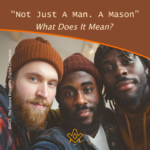 “Not Just A Man. A Mason”: What Does It Mean? Embrace the profound essence of Freemasonry, not merely a group but a journey of integrity, shaping men of dignity. By adopting virtues such as honesty, justice, and brotherly love, Freemasonry transcends time, urging us towards a dignified life. It’s more than being a man; it’s about living with unyielding dignity. |
 Multiculturism and the Culture of Freemasonry Freemasonry, with its deep roots in universal principles such as individual freedoms, education, and the pursuit of science, stands as a beacon of unity in a world divided by conflicting ideologies. By embracing the tenets of Freemasonry, including respect, peace, and mutual understanding, we can navigate societal challenges and foster a more harmonious world. |
 Embrace the new paradigm of eco-conscious living in the 21st century. Freemasonry, a cornerstone of society, must evolve, placing Nature at its heart. Reject anthropocentrism, embrace deep ecology, and champion sustainable living and global cooperation. Let Freemasonry lead by example, advocating for a world where humans and nature coexist harmoniously. |
 How Freemasonry Has Woven Itself into the Fabric of Society Like the weathered stones of an ancient temple, Freemasonry's origins are shrouded in mystery. This fraternal order has woven invisible threads throughout society's fabric since emerging in the 1600s. Despite declining membership, Freemasonry's influential legacy endures, seen in philanthropy, architecture, and the ideals of legendary members. Though facing challenges, revival remains possible if it adapts traditions to the modern era. |
 AI help in matching mentors with new Freemasons Harnessing AI for Freemasonry Mentorship: A Comparative Analysis. Freemasonry, an age-old fraternity, seeks to enhance its mentorship program by leveraging AI. While the Grand Master suggests detailed member profiles for matching, a Professional Coach emphasizes personality compatibility. Meanwhile, an AI Bot proposes machine learning for pattern recognition. Dive in to explore the potential and pitfalls of each approach. |
 Masonic Charities P.2 – The Shriners Discover the Shriners' legacy within Freemasonry; delve into their profound commitment to philanthropy and see how Masonic Charities demonstrate brotherly love, relief, and truth. Become inspired by the bonds that unite Shriners around the globe and their impactful work in local communities. |
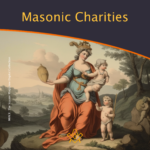 Freemasonry's commitment to charity has always been a priority and remains a core principle, reflecting its mission to promote brotherly love, relief, and truth in the world. Part 1 of the series gives an introduction to the establishment of the main Masonic Charitable endeavours in the 18th and 19th centuries and several key influencers. |
 Solomon Learning and Development Platform The Intersection of Freemasonry and Technology: Embracing the Digital Age with the New |
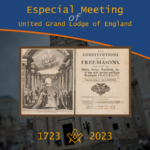 Especial Meeting of United Grand Lodge of England The year 2023 marks the tercentenary of the publication in London of the Constitutions of the Freemasons, based on Enlightenment principles that provide the philosophical foundations of modern Freemasonry. Why are the 1723 Constitutions important? Many Masonic histories have been concerned with ‘when’ and ‘what’. We also explore ‘why?’ |
 Like every other incident of initiation it is in the light of the larger meanings of Freemasonry that we must interpret the Rite of Destitution. But what does it mean? |
 Society of Grand Lodges in Alliance (SOGLIA) is a confederation of Grand Freemason Obediences in which all members obey the principles of Regularity. Assembled annually, in different places of the world, in order to share fellowship and to promote Masonic tradition, SOGLIA members are respecting the autonomy of each Grand Lodge. |
 Confederation of the Grand Lodges of Europe and the Mediterranean - Universal Freemasonry and its intellectual property are less and less taken into account in the current times of constant movement and unclear future prospects. |
 The Book of Law in Brazilian Freemasonry We are informed that, Freemasonry it is not a religion, but the candidate has a belief in a creative principle, which later, we call the Great Architect of the Universe. - by Fernando Rodrigues de Souza |
 Mike's Masonic Walks And Talks WBro. Mike Neville is a Masonic author and lecturer. He offers walks and talks primarily around London, based on his vast knowledge of the area and his specialist subjects, which cover all aspects of Masonic history. |
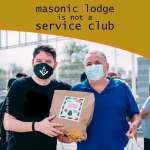 A Masonic lodge is not a service club An address delivered to the 10th Annual Conference of Western Canadian Grand Lodges (1950) in response to the question, "Should Our Western Grand Lodges Sponsor a Specific Program?" By |
 The Order of Bees was established as a youth initiative for the boys and girls of Prince Hall Freemasons, and symbolises the relationship existing between the activities of the youth and the family of bees. |
 The Confederación Masónica Interamericana (CMI) was founded in 1947, is a non-profit organization that groups together 92 Great Masonic Powers, admitted as members and distributed in 26 countries in South, Central, North, Caribbean and Europe. |
 This smartphone app is designed to work with all Freemasons from both Regular and Independent Grand Lodges around the world. |
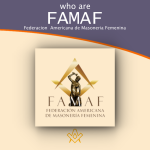 The American Federation of Feminine Freemasonry (FAMAF) is an organization that brings together Grand Lodges, Grand Orients and Confederations of Feminine Masonic Grand Lodges from the American continent. |
 The third largest Masonic Alliance of independent grand lodges, which currently has over 500,000 members in the world and an incredible resource of "good people with a good reputation" from around the world. |
 A Guiding Paw - my faithful 'brethren' A heart-warming story of one Mason's best friends – and how Gary's faithful guide dogs have helped fulfil both his Masonic life but also his valuable work in public service. |
 A visit to the Mother Lodge of Scotland Let me take you to the heart of Scotland to meet our Brethren of the Mother Lodge of Scotland, a journey into one of Freemasonry's deepest roots. Our guide Carlos Oliveira Santos who is from |
 An introduction to VEREINIGTE GROSSLOGEN von Deutschland / UNITED GRAND LODGES of Germany |
 International Masonic Union CATENA An international association of Grand Lodges and independent Lodges, with all true Masonic traditions, which adhere to the basic principles of the equal standing of men and women in Freemasonry |
 Social Impact of Prince Hall Freemasonry in D.C., 1825-1900. Alonza Tehuti Evans discusses Prince Hall Freemasonry, founded by African Americans. |
 Who are the Widows Sons, and what do they do, and how can you join ? |
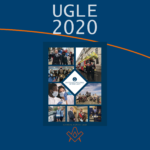 For the first time in its 300 year history UGLE has published an Annual Review |
 Founded in 1919 and named after the Grand Master of the Knights Templar, this International Order has helped young boys become great men. |
 9th International Conference of Freemasonry Hidden Meanings: Esotericism and Masonic Connections |
 An introduction to CLIPSAS and we look at who are they and what do they do |
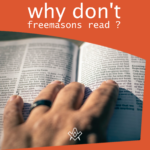 The title of this article will seem somewhat of an oxymoron, because at this precise moment you, most likely a Freemason, is reading this |
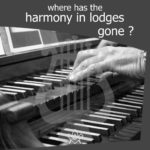 Music can make you either remember everything or forget everything! They even call it the 'rhythm' of life because life does have a beat, a rhythm, a song! Music is equally important for Freemasons. |
 Young Masons' Inter-Club Virtual Social An initiative was created to initially keep Brethren engaged in their Masonry whilst the restrictions of the COVID-19 pandemic are in place. |
 I've heard people say that we don't have heroes |
 What can we learn from Steve Jobs' address given at Stanford in 2005 |
 Open Lectures on Freemasonry as a series of monthly online lectures that aims to increase the visibility and accessibility of research into Freemasonry. The lectures are open to anyone who is interested. |
 What Kind of Library Do You Have? Many Brothers have no clue as to what kind of "Craft" library they actually have in their home or office. Most of these Brothers don’t care that they don't know – so, what kind of library do you have? |
 Russian Freemasonry a combination of a short sketch of its history and a review of the present-day Masonic landscape in this country |
 A brief outline showing the differences and similarities within Freemasonry |
masonic knowledge
to be a better citizen of the world
share the square with two brothers

click image to open email app on mobile device



